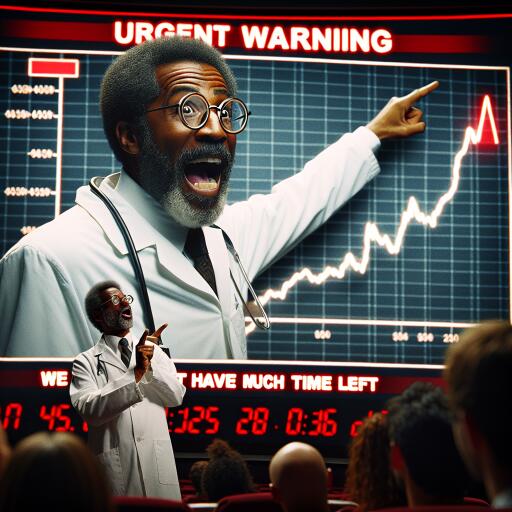
Prominent Scientist Issues Urgent Warning About the Future: ‘We Don’t Have Much Time Left’
As the world continues to grapple with pollution and climate change, a prominent voice has sounded an alarm bell about the imminent need for action. Renowned primatologist Dr. Jane Goodall has highlighted the critical importance of safeguarding our environment and the diverse life it supports, emphasizing the pressing need to act rapidly.
“We are witnessing the sixth mass extinction,” warns Dr. Goodall. Her clear message is that the time remaining to mitigate environmental degradation is swiftly diminishing. “We have wreaked havoc on our planet,” she laments, while maintaining hope that efforts to decelerate climate change and the depletion of biodiversity can still yield results. However, she cautions, “The opportunity to change our course is narrowing.”
Dr. Goodall emphasizes the intricate link between the destruction of natural habitats and global warming, pointing out that forests play a crucial role in absorbing harmful emissions. Reflecting on her research from over 60 years ago, she recalls the predictability of seasonal changes; today, unexpected weather patterns pose challenges to chimpanzees and other wildlife, disrupting their natural habitats.
Dr. Goodall advocates for stringent environmental regulations, a swift shift away from fossil fuels, and the cessation of industrial farming practices. Without these measures, she foresees a bleak future for both humanity and the planet.
Climate change, she notes, presents the most significant global health challenge of the current century. Areas historically unaffected by extreme heat are experiencing unprecedented temperatures, often without the means to cope. This leads to health issues, including heat exhaustion, heatstroke, and exacerbated conditions such as cardiovascular and kidney diseases.
Extreme weather events in the United States, including severe heatwaves, result annually in more fatalities than hurricanes and other disasters. Additionally, changing climates are intensifying storms, with wetter regions receiving even more precipitation while arid areas suffer from increased dryness.
The past year alone saw significant economic losses, with climate-related disasters in the U.S. causing upwards of $145 billion in damages. This staggering figure excludes the extensive health impacts borne by communities across the nation.
A path forward, according to Dr. Goodall, lies in habitat restoration efforts, like tree planting. Her organizations have spearheaded such initiatives, successfully planting over two million trees in Uganda over the past five years. These projects exemplify practical solutions to environmental issues and inspire hope for the future.
To contribute to positive change, individuals are encouraged to support policies that favor environmental protection through voting and advocacy. Engaging with climate-focused initiatives and backing organizations like Dr. Goodall’s can also make a significant difference in the global fight against climate change.





Leave a Reply